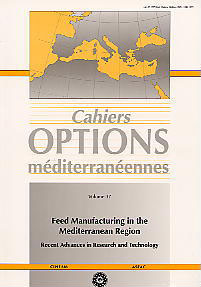| Article précédent | p. 49-60 | Article suivant |
Genetically modified ingredients in animal nutrition: Their safety and future
The immense potential of genetic manipulation techniques is now being realized with a dramatic increase in the agricultural and industrial use of modified plants and microorganisms. Many animal feeds now include material from crop plants that have been modified for characteristics such as disease or pest resistance that are unlikely to affect their nutritional value. In addition crop plants are being modified to improve their nutritional characteristics as animal feed (e.g., amino acid composition, degradability) or to function as bioreactors for products, including bulk enzymes and hormones, that have applications in animal nutrition. Genetic modification will also be used to improve the properties of microorganisms used as silage inoculants and as probiotics, and to create new microbial products. The likelihood that very large quantities of GM material will soon be ingested by animals worldwide makes it imperative that safety issues are fully explored. These include possible direct toxicity or antinutritional effects of transgene products, indirect or unplanned effects on gut microbial ecology and metabolism, and possible onward gene transfer of transgenes to the resident microflora of the gut. While current assessments of risk can only be based on available scientific knowledge, there is a continuing need to increase our basic understanding of many aspects of biology relevant to the safe exploitation of gene technology.
- [ Afficher ]
- [ Télécharger ]
- [ Exporter la citation ]
Vous pouvez télécharger la citation au format :
- [ Imprimer ]
-
Mots-clés
BIOTECHNOLOGIE, GENIE GENETIQUE, NUTRITION ANIMALE, PLANTE TRANSGENIQUE, RISQUE, TRANSFERT DE GENECiter cet article
Chesson A., Flint H.J. Genetically modified ingredients in animal nutrition: Their safety and future. In : Brufau J. (ed.), Tacon A. (ed.). Feed manufacturing in the Mediterranean region: Recent advances in research and technology. Zaragoza : CIHEAM, 1999. p. 49-60. (Cahiers Options Méditerranéennes; n. 37). 2. Conference of Feed Manufacturers of the Mediterranean, 1998/03/25-27, Reus (Spain). http://om.ciheam.org/om/pdf/c37/99600004.pdf



